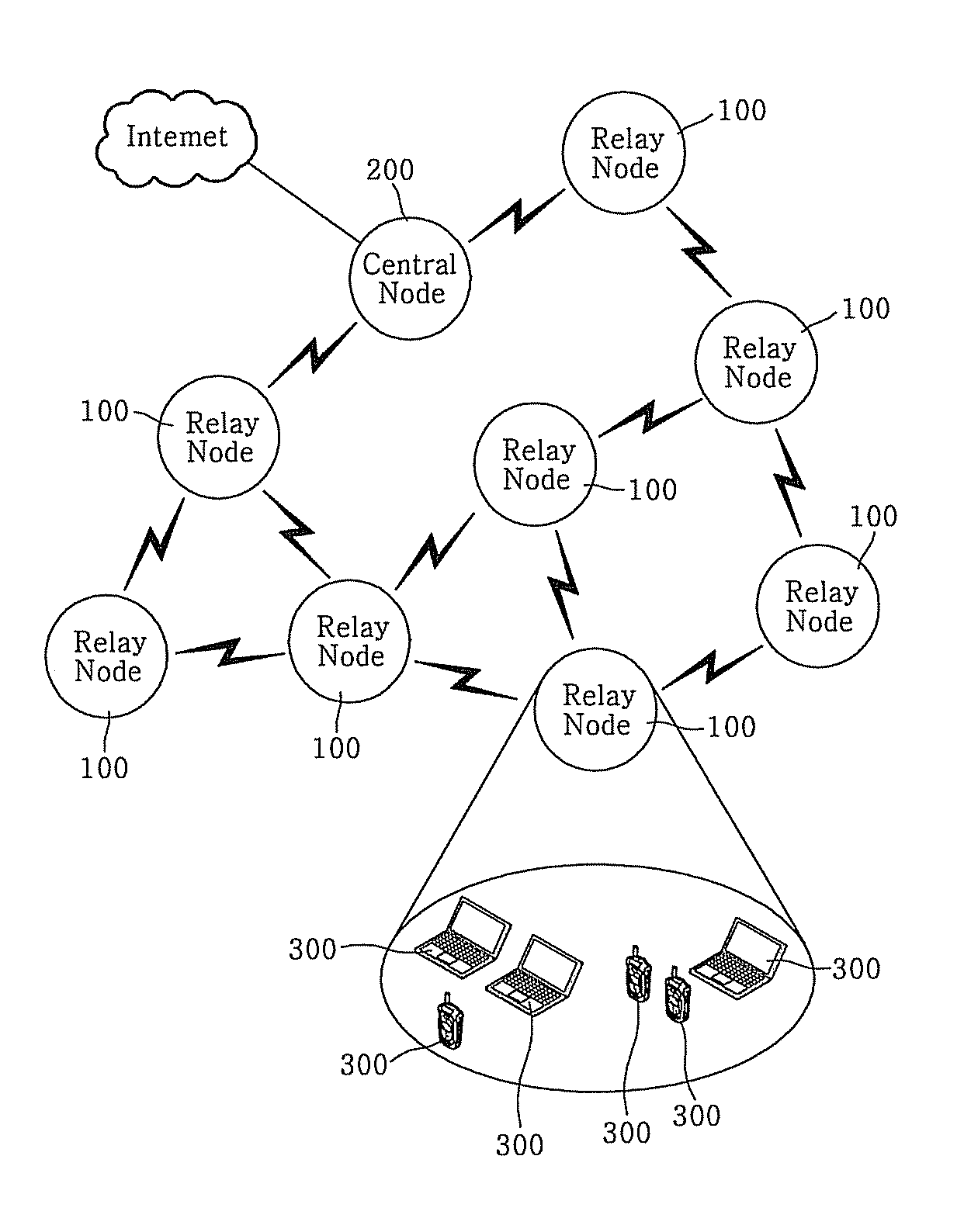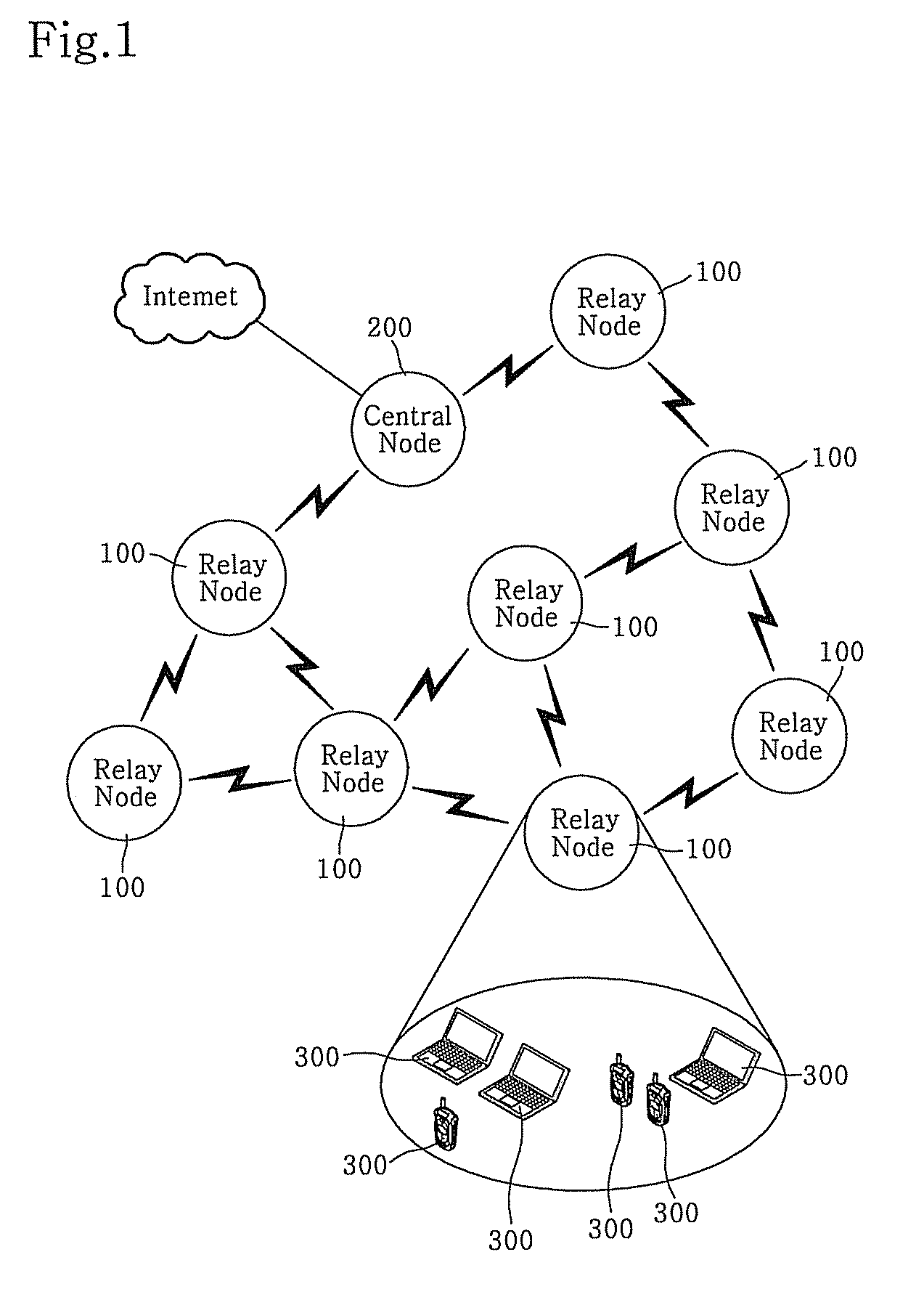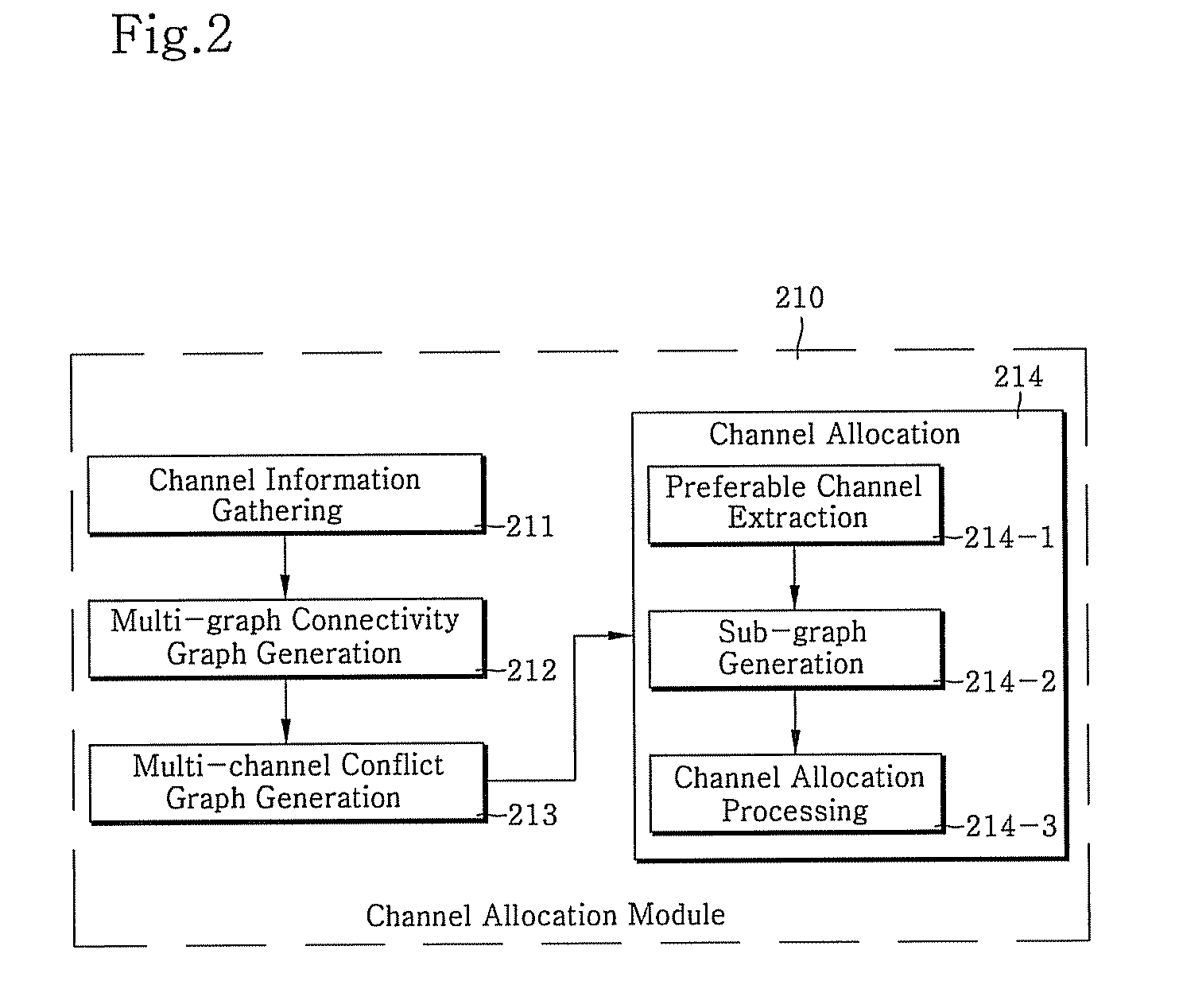Wireless network channel allocation method and multi-hop wireless network system using the same
a wireless network and wireless network technology, applied in the direction of network traffic/resource management, wireless commuication services, network topologies, etc., can solve the problems of interference between adjacent hops on the same path, different channel interference, and interference between the same channel. achieve the effect of reducing the number of overlapped colors
- Summary
- Abstract
- Description
- Claims
- Application Information
AI Technical Summary
Benefits of technology
Problems solved by technology
Method used
Image
Examples
Embodiment Construction
[0023]Now, preferred embodiments of the present invention will be described in detail with reference to the annexed drawings. In the drawings, the same or similar elements are denoted by the same reference numerals even though they are depicted in different drawings. In the following description, a detailed description of known functions and configurations incorporated herein will be omitted when it may make the subject matter of the present invention rather unclear.
[0024]FIG. 1 is a graph illustrating a multi-hop wireless network.
[0025]Referring to FIG. 1, a multi-hop wireless network consists of relay nodes and subscribed nodes. A wireless relay node (100) forwards packets like a router in a fixed network through wireless channels. Some relay nodes (200) are connected to the Internet and all subscribed nodes (300) can access the Internet through multi-hop relaying via relay nodes.
[0026]FIG. 2 is a conceptual diagram illustrating a multi-channel assignment module of a central node ...
PUM
 Login to View More
Login to View More Abstract
Description
Claims
Application Information
 Login to View More
Login to View More - R&D
- Intellectual Property
- Life Sciences
- Materials
- Tech Scout
- Unparalleled Data Quality
- Higher Quality Content
- 60% Fewer Hallucinations
Browse by: Latest US Patents, China's latest patents, Technical Efficacy Thesaurus, Application Domain, Technology Topic, Popular Technical Reports.
© 2025 PatSnap. All rights reserved.Legal|Privacy policy|Modern Slavery Act Transparency Statement|Sitemap|About US| Contact US: help@patsnap.com



